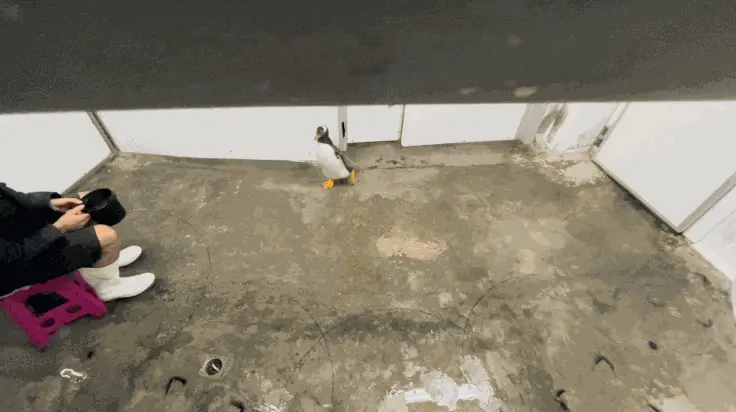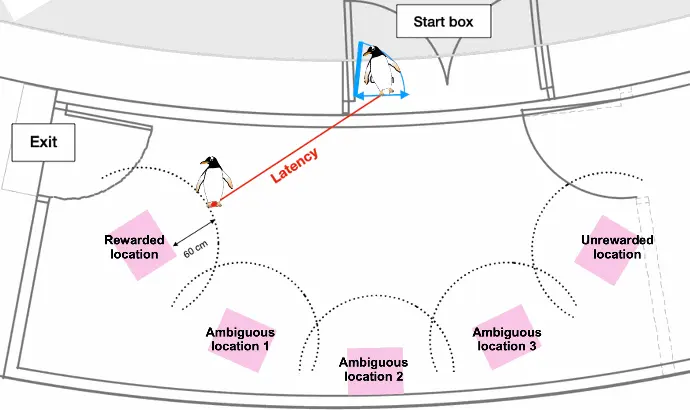Research project
Adapting and applying a Cognitive Bias Test to Assess the Welfare of zoo-housed Gentoo Penguins.
For my master's thesis, I designed and led an innovative research project at the Oceanografic of Valencia. Under the supervision of my mentor and in collaboration with the Oceanografic staff, I explored the feasibility of using a cognitive bias test to assess the welfare of zoo-housed Gentoo penguins.
Cognitive biases are systematic tendencies that shape how we interpret information, influencing our perception, memory, decision-making, and various other cognitive functions. Among these biases, the optimistic or pessimistic orientation towards an unknown situation (ambiguous stimuli) varies from one individual to another, thereby influencing their behavioral response. This diversity in cognitive responses is also found in animals, and scientific findings indicate that animals' behavioral responses to ambiguous stimuli can reflect their emotional state, thus providing clues to interpret their level of well-being.
Thus, when an animal exhibits a positive response to an ambiguous stimulus, it may reflect an optimistic perception of the environment and suggest a positive emotional state. In contrast, a negative reaction might indicate a pessimistic perception and suggest a negative emotional state. A change in an animal's reaction to the same ambiguous stimulus could signal a shift in that animal's emotional state.
In this study, we presented the penguins with ambiguous locations associated or not with the possibility of a food reward. The behavioral responses of the penguins to each ambiguous location were measured by timing how long it took a participant to move from the test room's entrance to the tested location.
Although cognitive bias tests are increasingly used to assess the welfare of domestic, laboratory, and farm animals, there is a noticeable gap in adapting these tests for zoo animals. This project, now being prepared for publication in a scientific journal, marks a significant advancement in promoting non-invasive techniques for evaluating the welfare of captive wild species.
I had the honor of being featured in an Oceanografic article that highlighted my research, along with the work of three other scientists, in celebration of the International Day of Women and Girls in Science.
© 2024 | Felicienne Zuppinger · Expert biologist in Animal Welfare & Wildlife Conservation | felicienne.zuppinger@gmail.com | +41792375297

